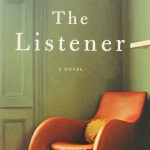Students Volunteer for Prison Program
Wesleyan’s innovative Center for Prison Education (Wesleyan, issue #1, 2012) is providing an education not only for inmates but also for Wesleyan students who are serving the program with stimulating internships, an opportunity rarely seen at other colleges and universities.
Zachary Fischman ’13, for instance, worked as a teaching assistant with Professor of Russian Language and Literature Priscilla Meyer in a course at the Cheshire Correctional Institution, the maximum security prison in Cheshire, Connecticut. Fischman, who had never visited a prison before he accompanied Meyer to her first class at Cheshire last fall, became so impressed with the program’s impact on the participating prisoners (and, conversely, their impact on him) that he stayed on for the spring semester as a CPE writing tutor.
“I’ve spent close to a year with these guys, and they’ve told me their stories,” he says. “This experience has been life-changing for me. The prisoners in the program really work hard, and they really hold you responsible for what you say. It has given me a much greater sense of responsibility for what I say, for the accuracy of my ideas.”
Fischman is one of about 15 to 20 student interns the CPE needs each semester in order to support the work at Cheshire, says Alexis “Lexi” Sturdy ’10, a founding member of the Center, who has served in the capacity of CPE Fellow since she graduated. Her multi-faceted job includes raising funds and recruiting faculty for the Cheshire program as well as a new program at York Correctional Institution, a prison for women in Niantic, Connecticut, which is expected to begin in the summer of 2012.
“Without the help of student interns, we simply couldn’t operate the Center,” she says. “We need eight students every week to operate the Cheshire program. They may be student assistants or tutors, like Zach, or they may simply be there for the study hall that’s open to participating prisoners every day. When the York program begins, we’ll need student assistants and tutors there, as well.”
Cara Tratner ’12, a sociology major who is considering a career in education, became involved with the CPE through a service learning class called “Critical Pedagogy” during her sophomore year. Last fall she facilitated a student forum exploring the issue of mass incarceration in the United States. The forum has been taught annually for the past four years, and the students who launched it in 2008 were also responsible for developing the original idea that became the CPE.
Along with another student, Becky Gillig ’12, Tratner also produced Convicted Scholars, a documentary video about the CPE, which can be viewed on YouTube. And this spring she wrote her senior thesis about the relationships between prisons and schools.
“The Center for Prison Education offers both prisoners and Wesleyan faculty and students a unique and transformative learning experience,” says Tratner, who has received a Watson Fellowship to spend the next year studying forms of alternative education that are successfully addressing the needs of communities often excluded from the mainstream in five foreign nations. “Being involved made me really interested in social justice in the broadest sense.”
It’s a position echoed by Mike Barsotti ’12, an American Government major and a pitcher for Wesleyan’s men’s baseball team. “I’ve always had a desire to be able to influence public policy in some way,” he says. “Through my involvement with the CPE, I’ve had an unusual opportunity to interact with people who came from a very different environment than me. What I learned, firsthand, about the contrast between what happens to prisoners in most prisons and the powerful impact that a program like the CPE can have on prisoners’ lives is something I’ll certainly take with me wherever I go after Wesleyan.”
“Many of the students who’ve worked with us the past three years have gone on to careers related to criminal justice and prison reform,” reports Sturdy. “But even if they don’t pursue such careers, students gain so much from this experience. Their involvement builds on and augments their education in the liberal arts, and is essential to the life of our initiative.” UPFRONT

